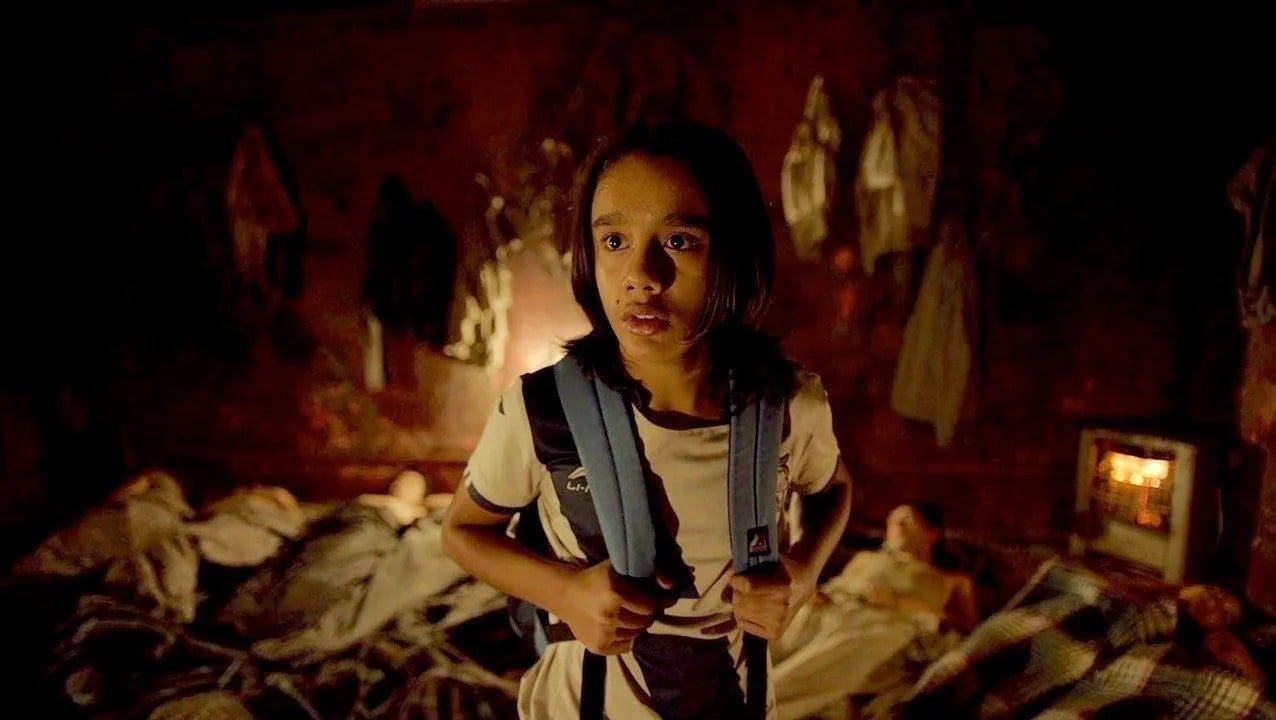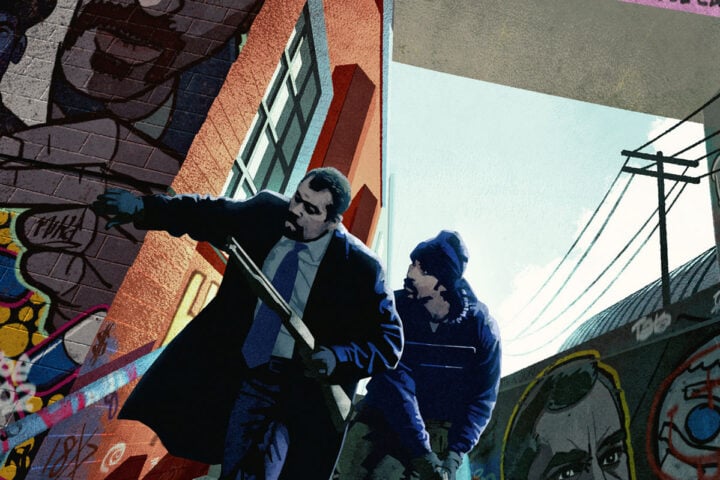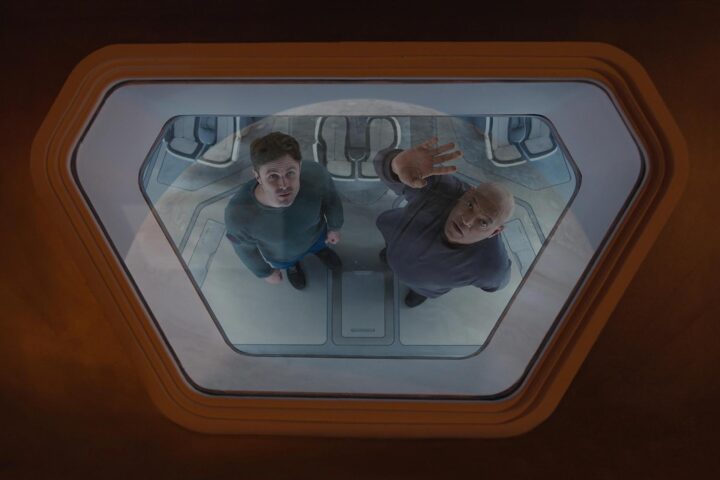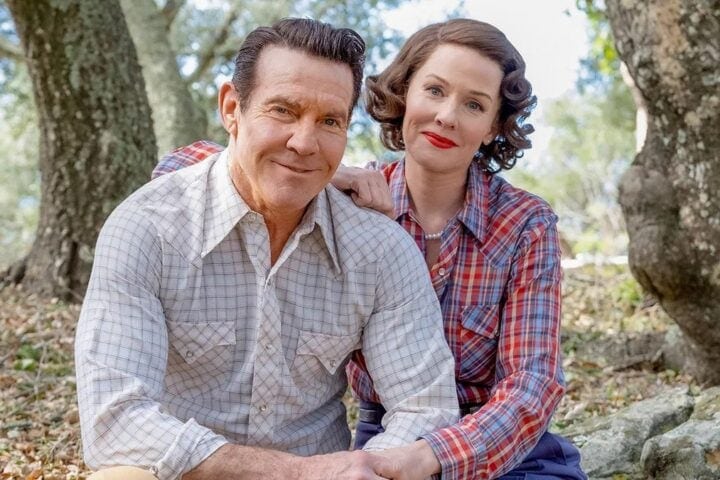The poster for writer-director Mohit Ramchandani’s City of Dreams touts that the film is “from Executive Producers of Sound of Freedom,” though picking them out of the laundry list of credited names might take some time. Among the many producers of Ramchandani’s feature directorial debut who’ve thrown their support behind its marketing campaign are Tony Robbins, Linda Perry, Thomas Jane, and former Republican presidential candidate and entrepreneur Vivek Ramaswamy. It would seem that nothing unites people across the political spectrum as fervently as exposing the horrors of child trafficking.
In contrast to Sound of Freedom’s law-enforcement-centred action-movie approach, City of Dreams presents its story through the vivid point of view of a young mute Mexican boy named Jésus (Ari Lopez) who’s been trafficked over the border and sold into the underground sweatshop industry. Lured by the promise of a soccer training camp in Los Angeles, Jésus instead arrives at a squalid boarded-up house where he will be interminably confined with several other children of various ages and forced to sew the same cheap garments for 18 hours a day. But this perspective doesn’t so much resemble a realistic peek into the modern slavery of immigrants in America as it does grist for the torture porn mill.
Introducing himself to others by holding up a hand that has his name tattooed on it, Jésus spends the majority of City of Dreams silently bearing witness to a parade of atrocities with an expression of slack-jawed incredulity on his face, often with comically large beads of sweat dotting his forehead. It’s a static characterization that means to speak to the fundamental horror of his condition but mostly succeeds at condescendingly reducing him to mannequin essentials.
Jésus watches others toil away as they try to fill their daily quotas and avoid the violent wrath of their boss and keeper, El Jefe (Alfredo Castro), and his lackey, Cesar (Andrés Delgado). He engages in a chaste flirtation with another captive, Elena (Renata Vaca), who’s then promptly sold into sex slavery by a woman (Nicole Andrews) who dons a leather outfit whose conspicuous squeakiness is ostensibly a measure of her depravity. Finally, Jésus rebels and faces his own punishment, leading to elongated torture scenes (shades of the brutal whipping from The Passion of the Christ) that cement the religious essence of our young hero’s name.
City of Dreams is shot through with a hysteric grindhouse verve that’s bizarre for feeling incongruous with the subject matter. Many of its stylistic maneuvers are certainly memorable though—namely a series of lengthy one-take shots, particularly one in which the camera tracks Jésus as he evades his captors while running and jumping through various buildings, including factories, and city streets. Elsewhere, we get a sense of Jésus’s soccer aspirations in dream sequences where he’s playing a professional game in a garishly green-screened stadium, while his nightmares often feature a portentous, menacing Aztec figure. Throughout, Ramchandani indulges his most purple instincts, right down to the moments of somber sentimentalism that are offered up as some sort of reprieve from the film’s default luridness.
If City of Dreams is meant as a wake-up call to the harsh realities of child trafficking, it consistently feels infuriating in all the wrong ways. The film briefly touches on how the victimizers are casualties of a failed American dream, as when El Jefe monologues about originally coming to Hollywood to become an actor and provide for his family back home, or when Cesar receives a university rejection letter because of his poor 790 SAT score. But such flashes of insight are undermined by the profoundly dubious depiction of the head trafficker, Rodrigo (Francisco Denis), as a flamboyantly evil bisexual. Meanwhile, Jason Patric appears in a heroic supporting role as the one police officer who cares enough to doggedly pursue this case, even as he’s introduced by pulling over a Mexican perp and calling him an “enchilada.”
Perhaps unsurprisingly, the role of the American ruling class in all of this goes underexamined. Despite closing with a tacky montage of real news clips covering recent youth labor scandals at major corporations like McDonalds, as well as title cards imploring audience members to refrain from spending money with these enabling companies, City of Dreams still seems to ignorantly view the child slavery phenomenon as something that exists in a sinful vacuum.
The film makes last-minute pleas for the end of child slavery, as in one from Lopez in an interview shoehorned into the end credits, but that’s all that they are. Had the film been interested in connecting the dots between the forms of exploitation that make child slavery possible, it might have, say, probed the role that politicians and CEOs play in perpetuating the kind of conditions for the exploitation of immigrants to thrive. (Ramaswamy, for one, is a vocal proponent of anti-ESG policies, arguing that corporations should be allowed to do whatever they want to maximize profits.) In the absence of such a line of inquiry, City of Dreams isn’t much better than the villainous sweatshop owners that it demonizes, ultimately exploiting an urgent crisis to provide audiences with the sort of genre kicks that it hopes will turn a profit.
Since 2001, we've brought you uncompromising, candid takes on the world of film, music, television, video games, theater, and more. Independently owned and operated publications like Slant have been hit hard in recent years, but we’re committed to keeping our content free and accessible—meaning no paywalls or fees.
If you like what we do, please consider subscribing to our Patreon or making a donation.






